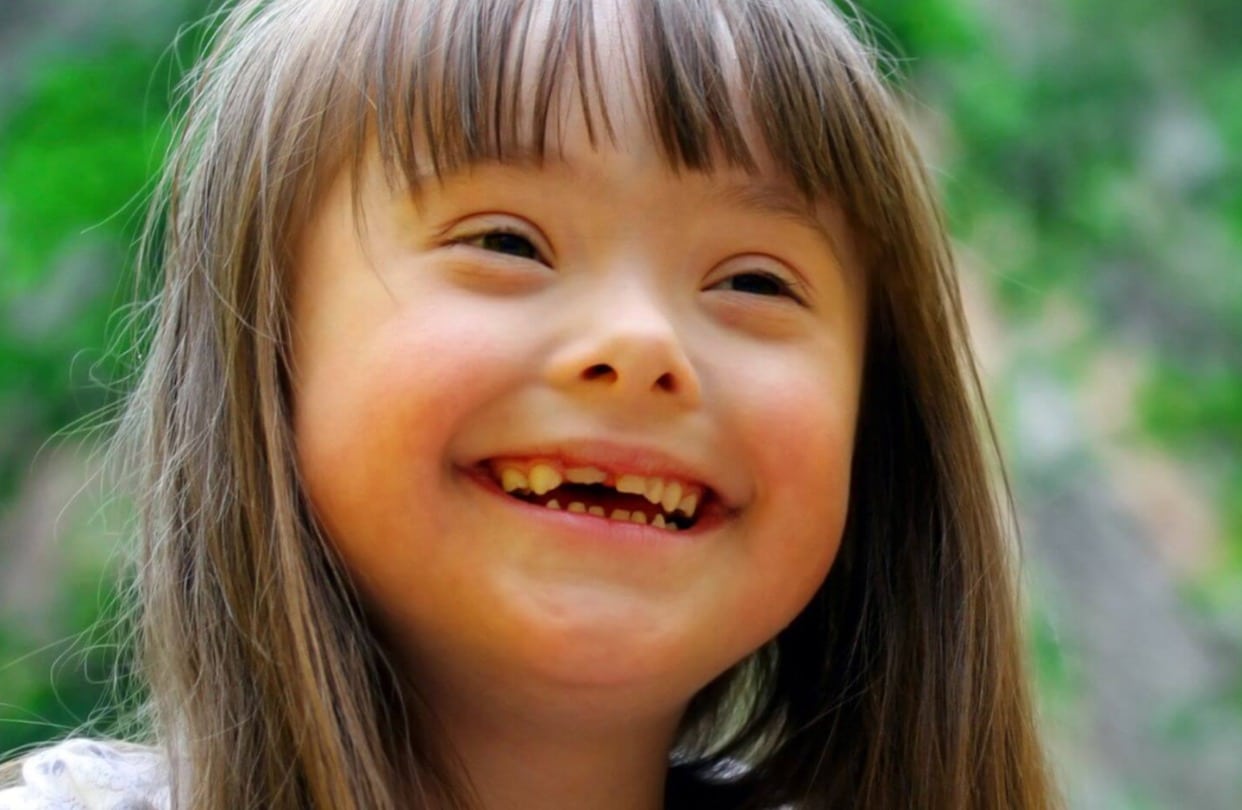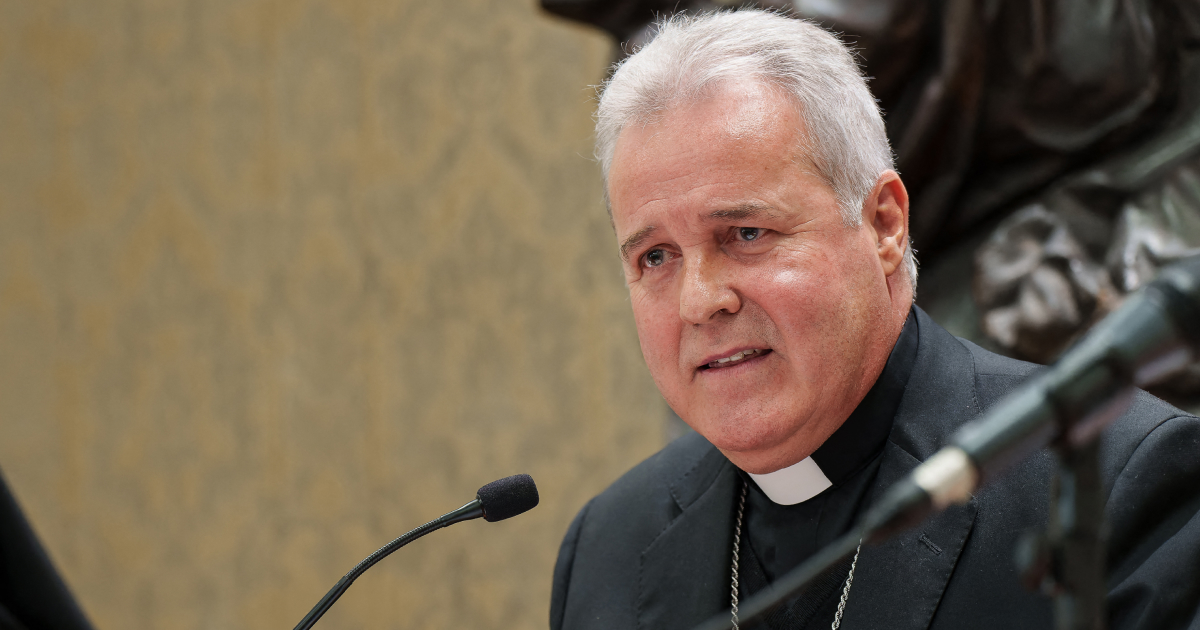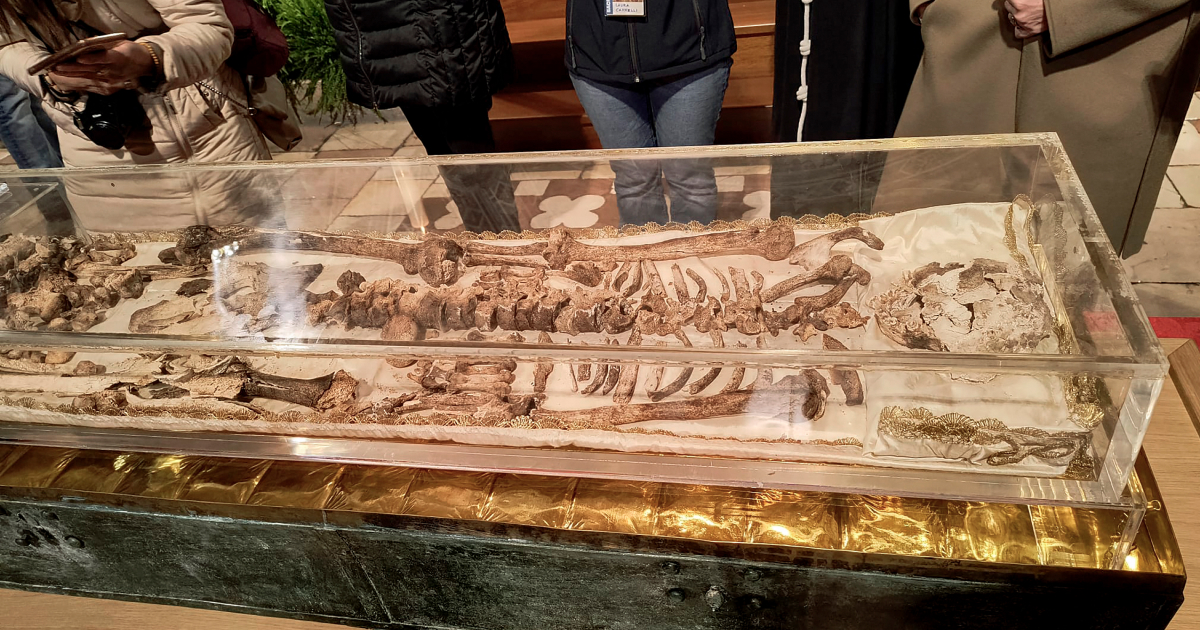Last year saw a 15 per cent increase in abortions for babies with Down’s syndrome in Scotland, according to new figures.
Public Health Scotland has published abortion statistics that show the number of abortions involving a baby with Down’s syndrome increased from 52 in 2023 to 60 in 2024. This number is an 82 per cent increase from 2021, when there were 33 abortions of unborn babies that had Down’s syndrome.
The figures also show that there were 280 abortions involving an unborn baby with a disability. This number is a 26 per cent increase from 2021, when there were 222 abortions involving an unborn baby with a disability.
“As a mother of a 25-year-old daughter who has Down’s syndrome, I see every day the unique value she brings to our family and the positive impact she has on others around her,” says Lynn Murray, spokesperson for Don’t Screen Us Out, an organisation that represents 17,000 people with Down’s syndrome, their families and supporters in the UK, whose mission is stated as "actively working to build a United Kingdom where people with Down’s syndrome are equally valued and have an equal chance of being born".
Murray continues: “It is deeply concerning that despite the leaps that advocacy groups have made in raising awareness in support of people with Down’s syndrome, abortion in the case of Down’s syndrome is still so commonplace and widespread in the UK. In fact, we hear from parents all the time how abortion was repeatedly presented to them in the hospital as an obvious solution following the receipt of the news that their baby had Down’s syndrome.”
Under the current law, abortion is allowed up to birth if a baby has a disability, including Down’s syndrome. However, last year Sir Liam Fox MP tabled an amendmentto the Criminal Justice Bill that was signed by over 76 MPs to stop abortion up to birth for babies with Down’s syndrome in England and Wales.
However, due to the General Election, the amendment was not voted on.
The abortion time limit under Section 1(1)(a) of the Abortion Act is set at 24 weeks, but for cases in which a baby is thought to have a disability, including Down’s syndrome, cleft lip and club foot, abortion is currently available up to birth.
The amendment proposed by Fox would have equalised the time limit for babies with Down’s syndrome, meaning that it would be set at 24 weeks.
The roll-out of new NIPT (Non-Invasive Prenatal) tests by NHS Scotland appears to be having a continued impact on the number of terminations.
An investigation by the Sunday Timesfoundthat the number of babies born with Down’s syndrome has fallen by 30 per cent in NHS hospitals that have introduced this form of screening.
The figures, which were released by 26 hospital trusts in England under freedom of information laws, account for about a fifth of the hospital trusts that offer maternity services. They show that more women who have the new test go on to have abortions.
The actual number of abortions for disability and Down’s syndrome is possibly higher than reported in the Public Health Scotland statistics due to underreporting of disability abortion statistics.
A 2013 review showed 886 abortions for Down’s syndrome in England and Wales in 2010 but only 482 were reported in abortion statistics from the Department of Health and Social Care. The underreporting was confirmed by a 2014 Department of Health and Social Care review.
There has been growing momentum for a change in the law in this area after Heidi Crowter, a 29-year-old woman from Coventry who has Down’s syndrome, took a landmark case against the UK Government over the disability clause in the current law. Her case has been heard in the High Court and Court of Appeal.
RELATED: Down’s woman vows to fight abortion law discrimination in Supreme Court
Heidi has been joined in her fight for justice by Máire Lea-Wilson from Brentford, West London, whose five-year-old son, Aidan, has Down’s syndrome. Máire Lea-Wilson was placed under pressure to have an abortion when a 34-week scan revealed her son had Down’s syndrome. There has been widespread coverage of Heidi and Máire’s case across major media outlets.
The UN Committee on the Rights of Persons with Disabilities has consistently criticised countries that provide for abortion in a way that distinguishes between fetuses on the basis of disability.
The Committee on the Rights of Persons with Disabilities’ concluding observations on the initial report of the United Kingdom of Great Britain and Northern Ireland made a key recommendation that the UK change its abortion law so that it does not single out babies with disabilities. The UK government has so far decided to ignore this recommendation.
The Disability Rights Commission (now the Equality and Human Rights Commission) has said that this aspect of the Abortion Act “is offensive to many people; it reinforces negative stereotypes of disability … is incompatible with valuing disability and non-disability equally".
The 2013 Parliamentary Inquiry into Abortion for Disability found the vast majority of those who gave evidence believed allowing abortion up to birth on the grounds of disability is discriminatory, contrary to the spirit of the Equality Act 2010 and that it affects wider public attitudes towards discrimination. The Inquiry recommended Parliament review the question of allowing abortion on the grounds of disability and should consider repealing section 1(1)(d) of the Abortion Act, which allows for it.
Disabled peer Lord Shinkwin previously proposed a Bill in the House of Lords that would have repealed section 1(1)(d) of the Abortion Act – the Bill was undefeated but unfortunately ran out of time. The Bill was supported by Disability Rights UK.
Pollinghas shown that the majority of people in England, Wales and Scotland feel that disability should not be grounds for abortion at all, with only one in three people thinking it is acceptable to ban abortion for gender or race but allow it for disability.
"The roll-out of new Non-Invasive Prenatal tests on the NHS in Scotland appears to be having a continued impact on the number of terminations," Murray says.
"We are calling on the Government to undertake an urgent inquiry to review the impact that Non-Invasive Prenatal tests are having on the number of babies that are screened out by termination due to Down’s syndrome in Scotland each year.
"They then need to urgently introduce medical reforms to our screening programme to ensure that this deeply disturbing increase in the number of abortions for disability is reversed."
RELATED: Scotland’s annual abortion numbers break record again
Photo: A young girl with Down's syndrome (screenshot from dontscreenusout.org).
Last year saw a 15 per cent increase in abortions for babies with Down’s syndrome in Scotland, according to new figures.
Public Health Scotland has published <a href="https://dontscreenusout-dot-yamm-track.appspot.com/2sgkjZK_QuDlOomc-pzvopqlU3BDtfKzPMI3PV6vMGDtzB24SlwF0sp5uNYHG08HG9qkqLVQv2idDpvQHXwvYplHPr8-U3-xdGS31Az35vwRX49WAEQRinyrhU1pVCSNqRela7h1hW1LYToQa-g98A5LiJvr6trNN9-5GQ63DwAu-OxLnJ9ort6m_KoNJNGFb2S2rosijP-G_7v1GgkivHi_95TIeHb9JC1W4VmboVnaOTZeCfULfXPuUC5jFOHcQ-BAdwVUtmBUzhT9_TIKoe9B2bJ9bEiEUwjK4" target="_blank" rel="noreferrer noopener"><mark style="background-color:rgba(0, 0, 0, 0)" class="has-inline-color has-vivid-cyan-blue-color">abortion statistics</mark></a> that show the number of abortions involving a baby with Down’s syndrome increased from 52 in 2023 to 60 in 2024. This number is an 82 per cent increase from 2021, when there were 33 abortions of unborn babies that had Down’s syndrome.
The figures also show that there were 280 abortions involving an unborn baby with a disability. This number is a 26 per cent increase from 2021, when there were 222 abortions involving an unborn baby with a disability.
“As a mother of a 25-year-old daughter who has Down’s syndrome, I see every day the unique value she brings to our family and the positive impact she has on others around her,” says Lynn Murray, spokesperson for <a href="https://dontscreenusout.org/"><mark style="background-color:rgba(0, 0, 0, 0)" class="has-inline-color has-vivid-cyan-blue-color">Don’t Screen Us Out</mark></a>, an organisation that represents 17,000 people with Down’s syndrome, their families and supporters in the UK, whose mission is stated as "actively working to build a United Kingdom where people with Down’s syndrome are equally valued and have an equal chance of being born".
Murray continues: “It is deeply concerning that despite the leaps that advocacy groups have made in raising awareness in support of people with Down’s syndrome, abortion in the case of Down’s syndrome is still so commonplace and widespread in the UK. In fact, we hear from parents all the time how abortion was repeatedly presented to them in the hospital as an obvious solution following the receipt of the news that their baby had Down’s syndrome.”
Under the current law, abortion is allowed up to birth if a baby has a disability, including Down’s syndrome. However, last year Sir Liam Fox MP tabled an <mark style="background-color:rgba(0, 0, 0, 0)" class="has-inline-color has-vivid-cyan-blue-color"><a href="https://dontscreenusout-dot-yamm-track.appspot.com/2fWuYk6KsKhHyhR2N6cnw_07avqNap9koCVdZgOKo72x2B24SlwF3i530hETb_wIGqOnGotODt3MG9QfIDmzZz5UuScHl9mG-GCk2GgmDfjj123_X6W4uisxz70JEvescIwFjwB2M25phJUGn50HBX2ikeKrQ1fbGllRLA27sk-g6xttRCIk1QCv5qp70liYoBvPW-R7NJkpUgwAoUEkLXv2uKFfIJWekJP2Yjz6mVMD5SB4" target="_blank" rel="noreferrer noopener">amendment</a> </mark>to the Criminal Justice Bill that was signed by over 76 MPs to stop abortion up to birth for babies with Down’s syndrome in England and Wales. <br><br>However, due to the General Election, the amendment was not voted on.
The abortion time limit under Section 1(1)(a) of the Abortion Act is set at 24 weeks, but for cases in which a baby is thought to have a disability, including Down’s syndrome, cleft lip and club foot, abortion is currently available up to birth.
The amendment proposed by Fox would have equalised the time limit for babies with Down’s syndrome, meaning that it would be set at 24 weeks.
The roll-out of new NIPT (Non-Invasive Prenatal) tests by NHS Scotland appears to be having a continued impact on the number of terminations.
An investigation by the<em> Sunday Times</em> <mark style="background-color:rgba(0, 0, 0, 0)" class="has-inline-color has-vivid-cyan-blue-color"><a href="https://dontscreenusout-dot-yamm-track.appspot.com/2pB84bvMlgMUMnaG5AQCGVLK3_lAhh6W9jYcPkQc2jLZ5B24SlwG-g3CvP3-4x56rD33WTCPn7CxmwuCc75Lhlqdn7OHNvip5F-WrQ_gVJpHESBFh9fNxEOdk1DGr9wgG12XIp8Z5JhXbCd1TGmvzPpCw3YZX0QXTbtlY3OJOIzjTBsaT-34Mo8woNowka2QOdHTpWjPyCiRfk4cYT_oa17_IP9FbUwIcuxJMUOR9j9BDWLmOb8VfqOCw0kk" target="_blank" rel="noreferrer noopener">found</a> </mark>that the number of babies born with Down’s syndrome has fallen by 30 per cent in NHS hospitals that have introduced this form of screening.
The figures, which were released by 26 hospital trusts in England under freedom of information laws, account for about a fifth of the hospital trusts that offer maternity services. They show that more women who have the new test go on to have abortions.
The actual number of abortions for disability and Down’s syndrome is possibly higher than reported in the Public Health Scotland statistics due to underreporting of disability abortion statistics.
A <a href="https://dontscreenusout-dot-yamm-track.appspot.com/2CWNNqDpV40Y6Awm4P5ZeJ0IJ8yzEWqhkvTdnoL_d7TR8B24SlwEDAWw_ccgKUwnIhTaXZW9K6rUeTBXCDiwG4crEq-pWPFfZOwJ1ojNlcdy21eeQixmx5kbRvcJMFnl1uEbMp4Z8QBDByeuJ1qrW_xiunp8_pn_zQY6BMzRrsXS8y4nmJoaFz_YHT9gsaWfCTAs4w6kLYhwj2367S51NsWI2gj2fzpL34fCeI7VZlLoWr4avfG_AEd5DEWb5Ryp2WCgsFFJrQcDjJIo" target="_blank" rel="noreferrer noopener"><mark style="background-color:rgba(0, 0, 0, 0)" class="has-inline-color has-vivid-cyan-blue-color">2013 review</mark></a> showed 886 abortions for Down’s syndrome in England and Wales in 2010 but only 482 were reported in abortion statistics from the Department of Health and Social Care. The underreporting <a href="https://dontscreenusout-dot-yamm-track.appspot.com/2ocxU2Id1heFe79EaDHzuIC1vd6OiR-0OoZzh2OeRbjN_B24SlwEM_9lh39uFcIi9E567mE5DFHTsyluuj98GG5epg3WjTB7pagU68Uywqj14wlZzsIypfVlXx1bJnt8G8D_yFUO0cQp1_b9P7ITW-vjeKKRhaGmPoVsShncJriRCR1rh-RXbZV2NsKf7jn38-mV_UGGpqqS-iVkDTvgZXTNqDwFi8c6jsJ3Pj12MUDJeSu5dgAU" target="_blank" rel="noreferrer noopener"><mark style="background-color:rgba(0, 0, 0, 0)" class="has-inline-color has-vivid-cyan-blue-color">was confirmed</mark></a> by a 2014 Department of Health and Social Care review.
There has been growing momentum for a change in the law in this area after Heidi Crowter, a 29-year-old woman from Coventry who has Down’s syndrome, took a landmark case against the UK Government over the disability clause in the current law. Her case has been heard in the High Court and Court of Appeal.
<a href="https://thecatholicherald.com/downs-woman-vows-to-fight-abortion-law-discrimination-in-supreme-court/"><mark style="background-color:rgba(0, 0, 0, 0)" class="has-inline-color has-vivid-cyan-blue-color"><strong><em>RELATED: Down’s woman vows to fight abortion law discrimination in Supreme Court</em></strong></mark></a>
Heidi has been joined in her fight for justice by Máire Lea-Wilson from Brentford, West London, whose five-year-old son, Aidan, has Down’s syndrome. Máire Lea-Wilson was placed under pressure to have an abortion when a 34-week scan revealed her son had Down’s syndrome. There has been <a href="https://dontscreenusout-dot-yamm-track.appspot.com/2UkTapgMgnwsOU1GczdErSUGJte1_UjGWp6zPhHndiEmKB24SlwE28x1-kfGFrcganDzW3MgF4IoLRJSMSw2YTMolrq-6UMAX8Ctt5EFXpHOQymG_tRtdVa40CJwiJftoFxRBHQ2b4PPJapCGRcFUU-EbrV0daLLW0-VrkYXhM_Mm7eRYuMj7PZZJp_ihqbqTZEvUdpwzOos66o1BS8QrLu3MAjyT24YMOezq4w" target="_blank" rel="noreferrer noopener"><mark style="background-color:rgba(0, 0, 0, 0)" class="has-inline-color has-vivid-cyan-blue-color">widespread coverage</mark></a> of Heidi and Máire’s case across major media outlets.
The UN Committee on the Rights of Persons with Disabilities has <a href="https://dontscreenusout-dot-yamm-track.appspot.com/2VCurqfWyR1Pw864yWDNDrjlmVGTo5_OaYqp_5zxADVGMB24SlwHiycAFTdjmYTQwdIwFHXZSupfQxvxEEoqDaHlJtlyKfzmdkllKO4tyItnRaPk502NPkoH8eSpTfxmQniBydG6kprJ5dEk_sctNPeeAUHMrsc9M2XCwvJCR4EawqW9Uh6iT8_47gbVrCFSu00Koqs-X-dY5t_ZKaIuHKZoYuYHLMb_0CSuRlAr82rovGH5pD4r8zA" target="_blank" rel="noreferrer noopener"><mark style="background-color:rgba(0, 0, 0, 0)" class="has-inline-color has-vivid-cyan-blue-color">consistently criticised countries</mark></a> that provide for abortion in a way that distinguishes between fetuses on the basis of disability.
The Committee on the Rights of Persons with Disabilities’ <a href="https://dontscreenusout-dot-yamm-track.appspot.com/27Ee3Q3wdII4MYuz589QZkgcysqtkSSW_dmz6HxaVXFGPB24SlwExV37pVjCjC3DRSmVR3SqnW15BThnY8ui7n1J9gdgFHpWycAwIp5ZKo_T9pTuZpl9VsT3p_BgdgahUVQBGF-c0BtEc53L_1EPHLNisrm0bxFU3a6WdPnoPtKF1KhROVHsYI4V6FaQHE_ERe7EzpY_RfsDdJrKUmNDbx5omspIVyGZ9fRa-0j3SkxelOGro_W2vVy42d4tC4XOj_h5r8m_NLeHAWSZ4eergOA7FgxgcI7IrA3pTgoJj90AQ_5AVYNpAmcBVrZ-CDoWApkysRJ1FRNZ-mJej21I5bqj3B-D9xkqBdhsZzV_kP52cIDhuxaEoda0z10UZTyVgCbrntQas4V7O" target="_blank" rel="noreferrer noopener"><mark style="background-color:rgba(0, 0, 0, 0)" class="has-inline-color has-vivid-cyan-blue-color">concluding observations</mark></a> on the initial report of the United Kingdom of Great Britain and Northern Ireland made a key recommendation that the UK change its abortion law so that it does not single out babies with disabilities. The UK government has so far decided to ignore this recommendation.
The Disability Rights Commission (now the Equality and Human Rights Commission) <a href="https://dontscreenusout-dot-yamm-track.appspot.com/2huHtJnMCWXJBr_eyC0W7_-wGa-zJHeRn4Nh-TvzJAkSVB24SlwGDmRt1SiRNvQAoQWB69e4Sf9uxtMe206jLwX7DBZIdhmhj96lu_M8UcLzHDhJ9EapIOan04qRYgQI6Wei8FProC-aM14Uf1jTvZzU3JQhSPjsT-AiVX_AV7UzvcQt8bfVJpHAqO-P6FVy9dNkHwqzidjf4Q4VOdJWln-q92tAE7fDTwtSaNeYukBTwmTe5APm_EaRdPdr4mXak1sTpTxkchamGnJwnV0BJRca7LGi3lI2SC1Mm0sPY54AkRGhLGOFWILfj" target="_blank" rel="noreferrer noopener"><mark style="background-color:rgba(0, 0, 0, 0)" class="has-inline-color has-vivid-cyan-blue-color">has said</mark></a> that this aspect of the Abortion Act “is offensive to many people; it reinforces negative stereotypes of disability … [and] is incompatible with valuing disability and non-disability equally".
The 2013 <a href="https://dontscreenusout-dot-yamm-track.appspot.com/2bjNRADHhUCbug6VGsF6SLyx_8BgbxFWSB_Ci8471-1CYB24SlwEX8JPslp2Z9NQD28GBZLOZU7FG855LMlLhEQ2k80rvsiV_56BNFSJoMB6om3IzwI2wiEn-vBgbKRc6PdjeAbzBqzntaD-TQ46WFc8n8cxp67Fi7Ds4nMfi56tF7kklhZADlB9BGxgUW5dlgJEgaRvxMbxJu7JtN9v24nyalo5RQMRFAsG5jQgg3id5WVQ00I2g8vlvCkebQzpK6DcjdfN1GmcJWR64cx_F0gXcIGZpB8wrSbPBahm0i29MD45zw5Vr0ChRcqDIictlNtW1iJ6szg2Y3f9k2RWhJT8NnXTzfpxfr4My0LZO6VlNgFy2j0yn2PEIw7wc6n2Pj74yh2roIs2kcRdvmGeCa-pBTWWzne8NPw5vlfrqKOmhrSMYjY7ufl0OI_bimntJ0o4" target="_blank" rel="noreferrer noopener"><mark style="background-color:rgba(0, 0, 0, 0)" class="has-inline-color has-vivid-cyan-blue-color">Parliamentary Inquiry into Abortion for Disability</mark></a> found the vast majority of those who gave evidence believed allowing abortion up to birth on the grounds of disability is discriminatory, contrary to the spirit of the Equality Act 2010 and that it affects wider public attitudes towards discrimination. The Inquiry recommended Parliament review the question of allowing abortion on the grounds of disability and should consider repealing section 1(1)(d) of the Abortion Act, which allows for it.
Disabled peer Lord Shinkwin previously proposed <a href="https://dontscreenusout-dot-yamm-track.appspot.com/2Q3rJLyw3HYTbxwKnxz-CehaFBziIRrg1CMvZyx0MPSSaB24SlwGP5bAuByAMrpt2Ap19wl9EJr9xY5Xmgjuu3ya3URxcLRhXdIUJse-v0JnkPy2VUXrbimAi4gh-s7Pzzo3ZkEnjYCRSeLT_Hx8YhRTJPabhRNqdLAn1-tQW6sdWn-EO411lKXcaQALnfZ_5p999J2QWgg" target="_blank" rel="noreferrer noopener"><mark style="background-color:rgba(0, 0, 0, 0)" class="has-inline-color has-vivid-cyan-blue-color">a Bill in the House of Lords</mark></a> that would have repealed section 1(1)(d) of the Abortion Act – the Bill was undefeated but unfortunately ran out of time. The Bill <a href="https://dontscreenusout-dot-yamm-track.appspot.com/2qUq_s5Oc73sRRxeijXnu_9hpjXaUt3dhh1d-aLFVnDicB24SlwGPaWbJ-Pp-WAc8YohsM8M6bJXpu_4ny5iFrrKiB_ISDGXnoo3jGpRJ5_fZiBHemKnoaYZTSBqU3VPEvMCxuybssRXCNRVwNDnUod3gMe4G23Nc9WpqBmNAq4sKXcBimvAafjaSU9KUOQvqijw4_MJSJszYSltaZO0GqtIFs0FMdS4nj4AV3UHY_ECUlQD7T30" target="_blank" rel="noreferrer noopener"><mark style="background-color:rgba(0, 0, 0, 0)" class="has-inline-color has-vivid-cyan-blue-color">was supported by Disability Rights UK</mark></a>.
<mark style="background-color:rgba(0, 0, 0, 0)" class="has-inline-color has-vivid-cyan-blue-color"><a href="https://dontscreenusout-dot-yamm-track.appspot.com/2kdaNChEPYfW8eN3v-4QnBCdRQyXx3hCfIr3E6L4RrROfB24SlwHRlgXK925bb22sdG2sFeSjyWZkQ6WzOsTjqht_Qw8NhrYH1ykCXn9T4t1oKlrA8Nd7rEsaSII67ChRN-PmGvtHiDGfWgUDBeVSlSLnc_l7CgeFpoV6Tu587Ndl-sqkeVtCQJBE4pqXtdfe4MpFA4WiceiW9VeLGGA65N-LHeru5ATfPsNAJmyMPcw-WWGUDAgre1fMlWq6L9zqnLL07HR8XdFsTdih9Ws5z-tER32LBnigLi7bDjcRP2Z794stEl6eOnHL4F-06bjBa9L3Ound2CR2LTH81SWbkRE_fP1tSudDQhnnhAx_i-Bm4bnuV6b4Im5k9wQ4c_mnwcYYcgnfSdAUqkUIvj8ucylNpwzVloFUlN6NNT_OJlqMv3LCQZU5d2f8h9xpZI0vZt0fIgHPr-XyU3OZctALjhnPAel96cdkRsDvoExdCNOD5IATwmAiOMa3qn8H2Emo7wyohLBL99G_libJDiLXMTfpBvmb5oL2ZiPWKcg" target="_blank" rel="noreferrer noopener">Polling</a> </mark>has shown that the majority of people in England, Wales and Scotland feel that disability should not be grounds for abortion at all, with only one in three people thinking it is acceptable to ban abortion for gender or race but allow it for disability.
"The roll-out of new Non-Invasive Prenatal tests on the NHS in Scotland appears to be having a continued impact on the number of terminations," Murray says.
"We are calling on the Government to undertake an urgent inquiry to review the impact that Non-Invasive Prenatal tests are having on the number of babies that are screened out by termination due to Down’s syndrome in Scotland each year.
"They then need to urgently introduce medical reforms to our screening programme to ensure that this deeply disturbing increase in the number of abortions for disability is reversed."
<a href="https://thecatholicherald.com/scotlands-annual-abortion-numbers-break-record-again/"><mark style="background-color:rgba(0, 0, 0, 0)" class="has-inline-color has-vivid-cyan-blue-color"><strong><em>RELATED: Scotland’s annual abortion numbers break record again</em></strong></mark></a>
<em>Photo: A young girl with Down's syndrome (screenshot from <a href="https://dontscreenusout.org/press-release-4-increase-in-abortions-where-baby-had-disability-in-scotland-as-momentum-grows-to-stop-abortion-up-to-birth-for-babies-with-downs-syndrome/"><mark style="background-color:rgba(0, 0, 0, 0)" class="has-inline-color has-vivid-cyan-blue-color">dontscreenusout.org</mark></a>).</em>


















